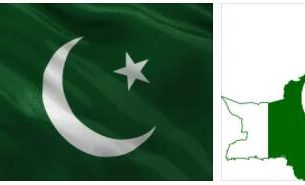In August 2008, the Georgian military offensive against South Ossetia prompted Russia to intervene militarily in the conflict region in the South Caucasus. Russian troops also temporarily advanced to central Georgian territory, which was particularly sharply criticized by the USA and Eastern European countries. Mediation efforts resulted in Russia and Georgia agreeing to an EU peace plan that provided for the withdrawal of Russian troops, despite fundamental differences that still existed. On August 26, 2008, the Russian government recognized the independence of the two provinces of Abkhazia and South Ossetia that break away from Georgia. At the end of November 2014, Russia signed a cooperation agreement with Abkhazia. It included aid payments from Russia, the creation of a common economic space and the development of common armed forces. The Georgian government sharply criticized the agreement. A cooperation agreement with South Ossetia followed in March 2015.
In 2010, the American President Obama and Medvedev signed a treaty in Prague to further reduce and limit strategic weapons of attack (New START treaty). On July 9, 2012, the Duma voted with a majority in favor of Russia joining the WTO. On June 23, 2013, the US secret service employee E. Snowden fled from Hong Kong to Moscow, where he was granted asylum despite demands for extradition from the USA. Washington sharply criticized this step.
The conflict with Ukraine, which has also caused a stir among Western European buyers of Russian energy supplies and has been smoldering since 2006, was initially settled in a gas and fleet agreement after various attempts in 2010 (discount on the gas price for Ukraine; stationing rights of the Russian Black Sea fleet in the Crimea until 2042 extended). Ukraine was then put under further pressure by Russia in August 2013 with import barriers and in October 2013 with renewed threats of outstanding gas bills. After Ukraine had decided not to sign an association agreement with the EU at the end of November 2013, Russia initially guaranteed Ukraine financial aid and a price reduction on gas deliveries. After the political upheaval in Ukraine in February 2014, Russia refused to recognize the new Ukrainian leadership and gave military support to the secessionist pro-Russian forces in Crimea. On March 1, 2014, President Putin approved by the Russian parliament the deployment of Russian armed forces on Ukrainian territory in order to be able to protect Russian citizens if necessary. Russia militarily and politically supported the plan of the pro-Russian Crimean government to hold a referendum on March 16, 2014 on a possible annexation of the peninsula to Russia. After around 96.8% of those who voted had voted in favor of an annexation to Russia, a contract was signed on March 18, 2014 on the annexation of Sevastopol and Crimea to Russia. The Duma and the Federation Council ratified this treaty on March 20 and 21, 2014, respectively. Crimea and Sevastopol were incorporated into the Russian Federation as new federal subjects. They received extensive financial and economic aid.
The Russian action led to growing tensions in relation to the Western states, which accused Russia of annexing Crimea and, subsequently, of continuing military support for the separatists in eastern Ukraine (Donetsk and Luhansk regions). The European Council canceled the EU-Russia summit scheduled for June 3, 2014 in Sochi. The OECD broke off negotiations on Russia’s accession in mid-March 2014. Economic and visa sanctions by the EU, the USA and Canada followed in the same month. In return, Russia also imposed individual entry bans. On April 1, 2014, NATO ended its cooperation with Russia. In April and June 2014, the USA and the EU again extended their entry bans and account freezes against certain people from Russia and Ukraine. The US and EU also imposed additional economic sanctions, which were tightened in September 2014 and restricted Russia in trade and access to international financial markets. Nevertheless, Russia continued to support the separatists’ military action in eastern Ukraine. A ceasefire negotiated in September 2014 by representatives of Ukraine and the separatists in Minsk with the participation of the OSCE and Russia had no effect. After further negotiations in Minsk, the heads of state and government of Germany, France, Russia and Ukraine agreed on February 12, 2015 on an agreement on a ceasefire for eastern Ukraine and the implementation of the measures adopted in Minsk in September 2014. However, the situation in Eastern Ukraine remained critical. which were tightened in September 2014 and restricted Russia in trade and access to international financial markets. Nevertheless, Russia continued to support the separatists’ military action in eastern Ukraine. A ceasefire negotiated in September 2014 by representatives of Ukraine and the separatists in Minsk with the participation of the OSCE and Russia had no effect. After further negotiations in Minsk, the heads of state and government of Germany, France, Russia and Ukraine agreed on February 12, 2015 on an agreement on a ceasefire for eastern Ukraine and the implementation of the measures adopted in Minsk in September 2014. However, the situation in Eastern Ukraine remained critical. which were tightened in September 2014 and restricted Russia in trade and access to international financial markets. Nevertheless, Russia continued to support the separatists’ military action in eastern Ukraine. A ceasefire negotiated in September 2014 by representatives of Ukraine and the separatists in Minsk with the participation of the OSCE and Russia had no effect. After further negotiations in Minsk, the heads of state and government of Germany, France, Russia and Ukraine agreed on February 12, 2015 on an agreement on a ceasefire for eastern Ukraine and the implementation of the measures adopted in Minsk in September 2014. However, the situation in Eastern Ukraine remained critical.
In March 2015, the EU decided not to lift the sanctions it had imposed on Russia as a result of the Ukraine crisis in 2014 until the Minsk peace agreement of February 2015 was fully implemented. From 2015, both the EU and the USA regularly extended their economic and personal sanctions. In return, Russia issued entry bans for European politicians and officials as well as import bans from Western countries, especially for food. In addition, Russia suspended an agreement with the USA on the destruction of weapons-grade plutonium. On June 30, 2017, Russia stopped paying contributions to the Parliamentary Assembly of the Council of Europe. The background to this was the decision to withdraw voting rights for Russian MPs due to the annexation of Crimea in 2014.
Interim reports by an international commission of inquiry into the crash of a Malaysian airliner on July 17, 2014 over eastern Ukraine (flight MH17) came to the conclusion that it had been shot down by anti-aircraft missiles and believed that a Russian troop unit was responsible for this. The presidents of Russia, Belarus and Kazakhstan signed a treaty on May 29, 2014 in Astana on the establishment of the Eurasian Economic Union, which came into force on January 1, 2015. On July 14, 2015, a nuclear agreement with Iran was concluded in Vienna with the participation of Russia.
On February 4, 2012, Russia and China vetoed a UN Security Council resolution against the ongoing violence in Syria. On September 30, 2015, Russia launched military air strikes in favor of the Assad regime in the Syrian civil war on. On October 31, 2015, a Russian plane crashed over the Sinai Peninsula, killing all 224 occupants. The Islamic State claimed responsibility for the attack. The shooting down of a Russian fighter jet by the Turkish air force on November 24, 2015 near the border with Syria put a considerable strain on the Russian-Turkish relationship. Russia imposed economic sanctions on Turkey. Russia remained firmly on the side of the Assad regime militarily and at the same time pushed efforts for a political solution to the Syrian conflict. From 2016, Russia, Turkey and Iran offered themselves as guarantor powers for a peace solution (Astana format) and subsequently became key actors in Syria.
Relations with the US deteriorated in connection with allegations of Russian interference in the US presidential campaign in 2016 in favor of D. Trump and at the expense of H. Clinton . This resulted in criminal investigations in the USA and further, mainly diplomatic, sanctions. In addition, there were penalties by the USA and other Western states over allegations that Russia was responsible for the attack with a chemical warfare agent on a former double agent on March 4, 2018 in Great Britain (Skripal affair).



